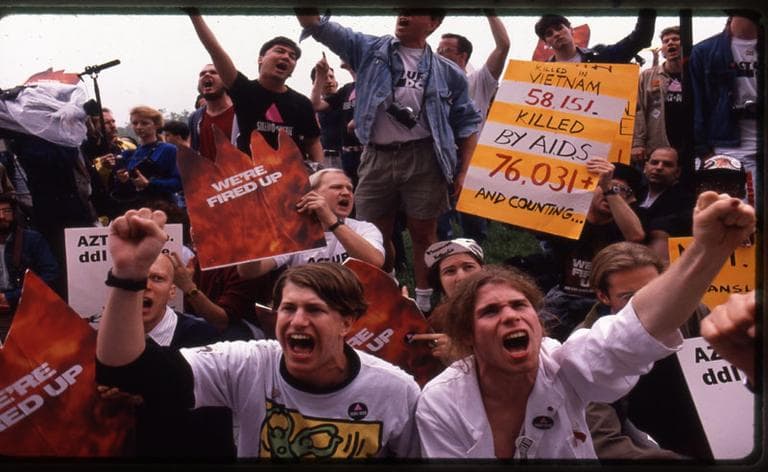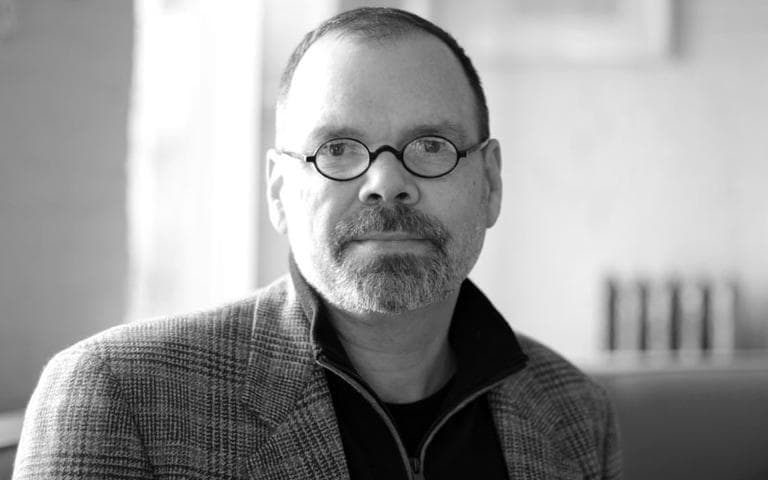Advertisement
Oscar-Nominated Documentary Tells History of AIDS Fight
Resume
HIV/AIDS was a crisis that mobilized the gay community in the 1980s.
Activists were outraged that there were so few drugs to treat the disease, which was killing growing numbers of gay men.
As a new Oscar nominated documentary shows, protesters took their case to the Food and Drug Administration (FDA) and the National Institutes of Health (NIH), and were ultimately able to inject themselves into the process of developing drugs to treat the disease.
"They took a system of science that was academic and hidebound and made it a moral practice... And the legacy that is left from that is something that everyone benefits from.
David France
David France is director of the film "How to Survive a Plague" (see trailer below).
He told Here & Now's Sacha Pfeiffer, that the activists became "citizen scientists who are now acknowledged by all sides as having really been the ingredient... helping bring scientists to the discovery of the new drugs which in '96 made it possible to survive an HIV infection."
People with AIDS faced heavy discrimination in the early days, France said. Even in large cities, if you went to the hospital, it was likely "you would be refused care, that you would be refused admissions to the hospitals because doctors didn't want to work with such a dangerous and mysterious illness. Hospital staff wouldn't bring food into rooms. Neighbors were burning the houses down of neighbors who had HIV in their homes."
Much of the early work of ACT UP (Aids Coalition to Unleash Power) was, to "establish the humanity of people with HIV and the humanity of gay people in general," France said.
The multiple drug regimen that made it possible to survive and live with HIV was discovered in 1996.
"It left a lot of people with the task of going about living an ordinary life, which they were not at all prepared for, having spent 15 years sure they were going to die, making no plans, investing nothing in a career or in any way preparing themselves for longevity," France said.

They were also not prepared for the huge amount of unprocessed grief that resulted from the years of seeing many of their friends die of the disease.
AIDS activists also spoke about the fulfilling nature of the work that they did, working shoulder-to-shoulder with Nobel Prize winning scientists to find treatments for the disease.
"They were no longer working with those scientists, they were no longer meeting every day with some of the smartest minds in the country...and it left them wanting," he said, noting that some even fell into deep depressions or drug addictions.
However, France agrees with Larry Kramer, one of the founders of ACT-UP, who says the work by AIDS activists is the greatest achievement the gay community can ever claim.
"They took a system of science that was academic and hidebound and made it a moral practice," France said. "And that's immense. And the legacy that is left from that is something that everyone benefits from."
Guest:
- David France, co-writer and director of "How to Survive a Plague."
This segment aired on March 8, 2013.